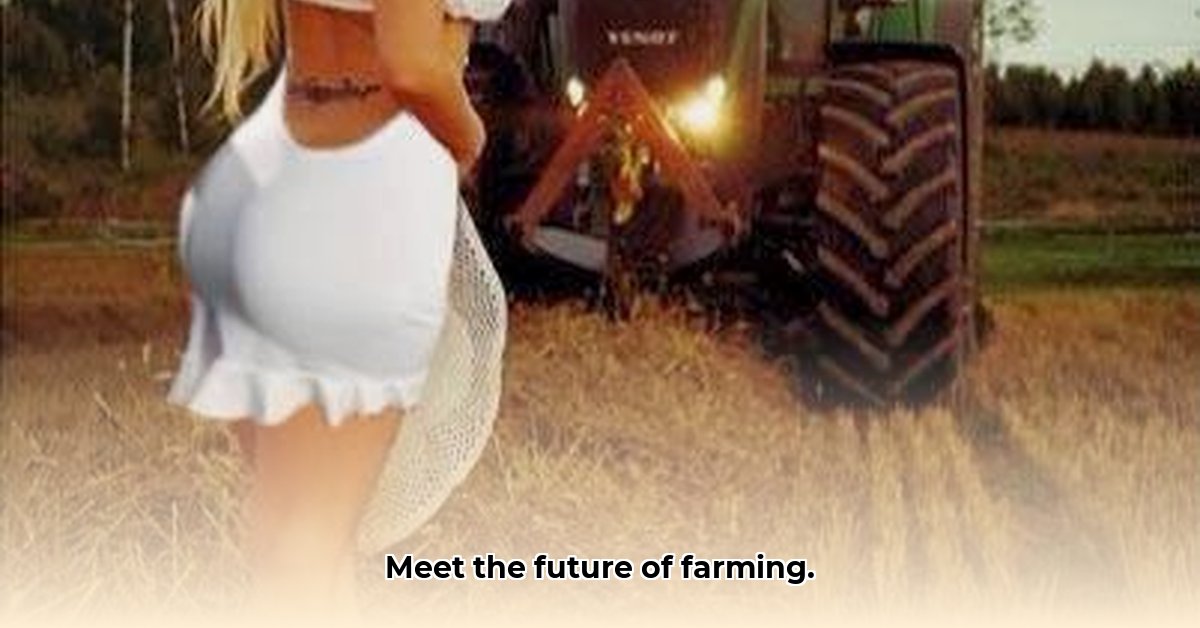
The viral "Tractor Girl" videos aren't just entertaining; they're a powerful symbol of agriculture's transformation. These videos showcase the impressive machinery modern farming utilizes, but also highlight the human element—the dedication, skill, and physical demands—behind food production. This article delves into the implications of this technological revolution, exploring its benefits, challenges, and the urgent need for sustainable practices. For more on the cost of this equipment, see tractor costs.
The Rise of the Machines: A Technological Revolution in Agriculture
These captivating videos frequently feature behemoth machines—John Deere tractors, Case IH harvesters, even modified Volvo construction equipment. These are not your grandfather's farm implements; they're sophisticated tools capable of covering vast acreages with unprecedented speed and efficiency. Imagine the difference between hand-planting a field and a self-driving tractor planting hundreds of acres in a single day! This technological leap is dramatically reshaping agricultural productivity. But how has this mechanization impacted overall sustainability?
More Than Just Machines: The Human Factor in High-Tech Farming
The "Tractor Girl" videos, while visually striking, offer subtle glimpses into the physically demanding nature of this work. The women featured represent a highly skilled workforce, operating complex machinery requiring both technical expertise and immense physical strength. They work long hours, battling the elements and demanding intense concentration. This reveals a critical aspect often overlooked: The toll of modern farming on the individual. Doesn't the focus on technological advancement sometimes overshadow the human cost of this progress?
Sustainability Concerns: The Environmental Footprint of Modern Farming
While the videos celebrate mechanized agriculture's efficiency, they largely omit a crucial element: sustainability. These powerful machines consume vast quantities of fuel, generate emissions, and can contribute to soil erosion unless carefully managed. This raises important questions: Can we continue to prioritize increased output without jeopardizing the long-term health of our land and environment? This gap between technological progress and sustainable practices needs immediate attention. Precision farming techniques, for instance, could be a partial solution. What are the precise applications and impact of such techniques?
Finding a Balance: A Path Towards Sustainable and Equitable Farming
The "Tractor Girl" videos, though incomplete in their representation, serve as a critical starting point for a vital conversation. Technological advancements are undeniably crucial for boosting food production, but sustainability and equitable labor practices must also be at the forefront. Here's a roadmap for a more balanced approach:
Actionable Steps:
Invest in Operator Safety and Training: Farmers and businesses should prioritize comprehensive safety training for all operators, particularly in light of the physically demanding nature of this work. This includes regular safety checks, updated equipment, and emergency response protocols.
Embrace Precision Agriculture Technologies: Farmers should explore cost-effective precision agriculture tools like GPS-guided machinery and soil sensors. These technologies allow for optimized resource allocation, reducing waste and environmental impact. Data analysis can further improve decision-making and resource management.
Prioritize Sustainable Farming Practices: Implementing crop rotation, cover cropping, and reduced tillage methods significantly improves soil health and mitigates environmental risks. Research into soil health and carbon sequestration is also crucial.
Transition to Sustainable Fuels and Technologies: As technology advances, manufacturers and farmers should consider transitioning to alternative fuels (biofuels, electricity) and more environmentally friendly machinery. Government incentives and subsidies can facilitate this transition.
Promote Data Transparency and Equitable Access: Governments and NGOs must establish clear data privacy regulations and ensure equitable access to modern agricultural technologies for all farmers.
Support Farmer Well-being: Addressing the physical and mental health concerns of farmers is critical. This includes initiatives focused on worker safety, fair compensation, and improved working conditions.
The "Tractor Girl" videos are a potent reminder that agriculture is a complex ecosystem encompassing technology, the environment, and the human element. A collaborative effort involving farmers, manufacturers, policymakers, and consumers is crucial to ensure a future where technology and sustainability work in harmony. Only then can we build a truly equitable and sustainable food system for generations to come.